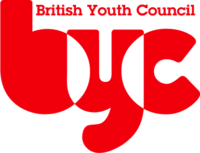Empowering youth voices in accessing healthcare services: a firsthand account
As a young person it can be remarkably challenging in accessing healthcare services. Sometimes it feels impossible to access them at all. Drawing from my own experiences, this blog explores why young people’s voices are so pertinent in ensuring they receive the great healthcare they are entitled to. The struggles as a young person My
- Published in Blogs, NHS Youth Forum
Scotland, Gender Recognition Act Reform and Trans Healthcare Explained
Recently, the Scottish Parliament (which passes laws separately to the UK Parliament in Westminster under devolution) passed the ‘Gender Recognition Reform (Scotland) Bill’ that would enable Trans people to attain legal gender recognition by a process of informed consent. However, it has become the first ever bill blocked by the UK Parliament under Section 35
- Published in NHS Youth Forum
Healthcare inequalities and strategies to address them
Healthcare inequality is a complex and multifaceted issue that affects individuals and communities across the globe. Despite advances in medical technology and healthcare delivery systems, many individuals and communities continue to experience significant disparities in access to healthcare, the quality of healthcare they receive, and health outcomes. One of the main drivers of healthcare inequality
- Published in Blogs, NHS Youth Forum
Stereotypes of young people accessing healthcare services
Last November, Pulse, the UK’s leading publication for GP related news, published the article, “We have medicalised normal life and it’s destroying the NHS”. This is the response from a young person. Fighting negative stereotypes I have been to many appointments where a healthcare professional hasn’t spoke to me for the whole appointment; they have
- Published in Blogs, NHS Youth Forum
The 2023 NHS Youth Forum Reports are here!
The NHS Youth Forum are 24 young people who are passionate about improving the NHS. They work with NHS England, Public Health England and the Department of Health, enabling them to have a genuine impact on health services. This year there are four sub-groups to the NHS Youth Forum, each tackling a different area of
- Published in News, NHS Youth Forum
NHS Youth Forum Residential – November 2022
Following a successful first residential in Birmingham in mid-November, Grace, who comes from the South West, has written a blog about her experience. Saturday morning We all arrived early Saturday morning to Birmingham, some of us very tired, but that didn’t stop us from chatting and getting to know each other! We got started with
- Published in Blogs, NHS Youth Forum
NHS Youth Forum speaks out on digital mental health services, healthcare inequalities, widening access and more
In collaboration with the NHS, the NHS Youth Forum have released reports and resources which encompass their drive to address the issues young people face in healthcare. These reports and resources focus on digital mental health services, healthcare inequalities, widening access and the experiences of young people throughout the UK. Additionally, each report suggests recommendations
- Published in News, NHS Youth Forum
Transforming health – visiting the NHS ConfedExpo
The NHS Youth Forum delivered a presentation at the NHS ConfedExpo on June 15th in Liverpool. This is a flagship event for the NHS where the NHS Confederation, NHS England and NHS Improvement unite healthcare leaders and their teams at one of the most significant events in 2022. Muhammed delivered a presentation at the NHS ConfedExpo
- Published in Blogs, NHS Youth Forum
The impact volunteering can have on your life
Having had personal experiences of the impact volunteers make during a six month spell in and out of hospital, I was inspired to give back to my local community. Many young people may find it difficult to find volunteering positions that are flexible around their studies and other commitments or available for their age group.
- Published in Blogs, NHS Youth Forum
A small action can make huge differences
Due to the COVID-19 pandemic, we all have to abide by restrictions such as social distancing and prevent unnecessary trips, the opportunities of carrying out face to face interaction within the community are extremely difficult. However the masks and social distancing does not stop one from volunteering and serving the community, just in an alternative
- Published in Blogs, NHS Youth Forum
- 1
- 2











